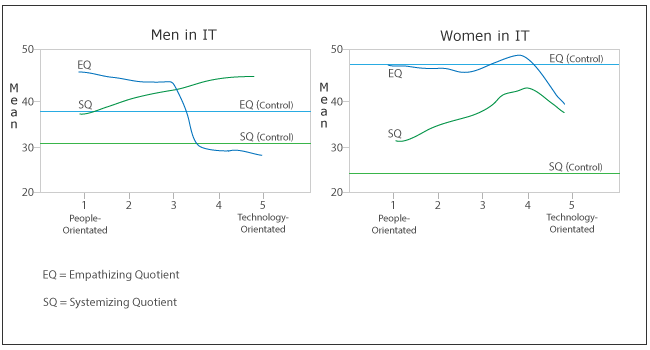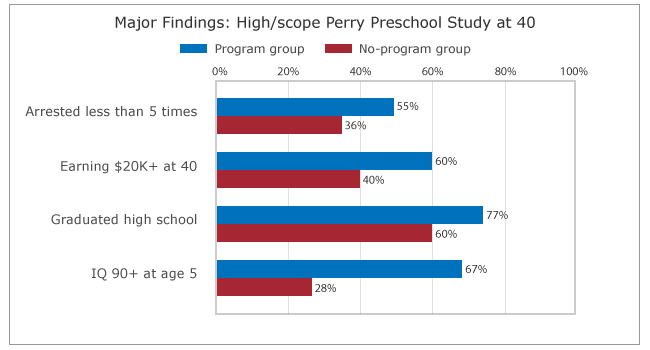It’s for the kids :)
Design studio IDEO champion a design approach called empathic design which consists of an iterative 5 step process for creating desirable products. It has been used successfully over and over to create the kind of experiences people absolutely love - from Hunter Gatherer (a food movement in China) to envisioning the future kitchen with European furniture giant IKEA and designing smarter mobility with Ford.
The 5 step process contains the following steps:

On the outside, this flow seems like a simple concept. So why is it so hard for everyone to implement? The answer is both simple and complex but boils down to one simple fact. Empathic design requires empathy, and people who are involved in the technology industry suck at empathy. You and me both - double points if you are skipping lunch with your team to read this article.
The ability to understand and identify with another person’s context, emotions, goals, and motivations
Like it or not, research confirms that people in IT suck at empathy. A survey of 441 people measured whether they were more “systemizers” or “empathizers”.
The results?
The more a person self-described their role as technical (on a scale of 1-5), the more likely a person was to have a stronger tendency towards systemization (SQ) and a less developed sense of empathy (EQ). The effect was also noticeably more pronounced in men than women.

Even more interestingly, it also showed that systemization and empathization tendencies were inversely correlated. The better you are at systemizing things, the worse you are at empathy.
We’ve built Fluid UI to be the most user friendly tool we can and we love supporting great coding movements like CoderDojo, Girls Who Code and Luma Lab who are teaching young children about technology. But we also believe strongly that there is a need to focus on creativity, empathy and design skills in our education systems. After all, empathy (not intelligence) is the trait attributed to our most successful leaders and creative thinking is one of the foundations of great design.
Recently, I read a thesis entitled “Emotional literacy development in early childhood education”. While a bit of a mouthful of a title (like many theses tend to have), it showed that the quality of education in the area of emotional literacy and empathy development is far less mature than other subjects like math or science.
Skills learned in early childhood significantly affect how children perform in all manner of challenges for the rest of their lives. The High/Scope Perry pre-school project tracked children for nearly 40 years after some were provided an additional early stage educational programme. The effects of the additional opportunities were phenomenal:

How can we expect to create a generation of truly brilliant designers who can instinctively emote with users if we aren’t developing our children’s empathy from an early age? But we are not actually doing that as effectively as we could be.
Roots of empathy, High Scope, circle time, scrum in the classroom: each of these are approaches that encourage the development of empathy in our children and each approach uses art, literature, social engagement and music as a way to teach empathy (which is confirmed as an intelligence and can be learned) while promoting responsible decision making.
It’s no surprise that art and literature - both artistic and creative endeavors - are at the core of these programs that develop the emotional intelligence and focus less on the systemizing intelligence of our children right from a very young age. What saddens me still is that many of these programs are extra curricular and not wholly part of our entire education systems (yet).
Teaching the core skills valued by design thinking from a young age will result in a creative, empathic, confident and productive society.
Our educational system, born of the need for complacent, obedient workers and consumers was created at the dawn of the industrial age.
The job is what you do when you are told what to do. The job is showing up at the factory, following instructions, meeting spec, and being managed - Seth Godin
But human brains are no longer optimising for rote learning. We have the internet for recall. Who we are now exists outside our body just as much as it does inside it. Much of education is still built around the concept of exams, about fitting into society, about conforming. It hasn’t adapted to the more modern needs for a workforce. The exams you do at 16 or 18 are far less important than whether you are successful overall as a person at life, and learning skills like design thinking and empathy promote the emotional literacy needed to bring the lifelong benefits seen in the Perry / High-scope pre-school results.
Speaking only for myself, I know a lot of creative people that were far more interested in sketching pictures than they were studying for maths or English, but the educational system doesn’t really account for that.
“Every child is an artist, the problem is staying an artist when you grow up” – Pablo Picasso
Teaching coding solves a short term problem. It strengthens the systemizing ability, but runs the risk of reducing our ability to be creative. By teaching children how to put things in boxes, they never learn that creativity comes from outside those boxes. Teaching children to code further helps the “systemized learning” - but doesn’t help with empathic learning.
The most important core skills of emotive design is empathy, and as designers, we have a responsibility to the next generation to ensure that they too can create engaging user experiences. Empathy means evaluating users and experiences from other peoples’ points of view and good user experience practitioners need empathy above all else. We can’t create a new generation of great experiences without a generation who have a developed a sense of empathy.
All evidence shows that we are actually getting smarter. Roughly we are getting 10 IQ points smarter every decade. Bjarke Ingels
The scientific method brought about a renaissance in how we solved logical problems and heralded a new era for humanity. It lead, over time, to the industrial revolution, our understanding of the universe and the otherwise inconceivable achievements that humanity now takes for granted.
Humanity is getting smarter every decade. We are getting smarter because our access to information through the internet combined with our deeper understanding of how to educate our children means more knowledge can be acquired in a shorter period of time and from a younger age than ever before.
Just like design thinking has evolved over the last decade in a business context, emotional literacy development in our children is still only becoming better understood. Rather than teaching a transient skill like coding, should we not focus on lifelong skills like creativity and emotional literacy?